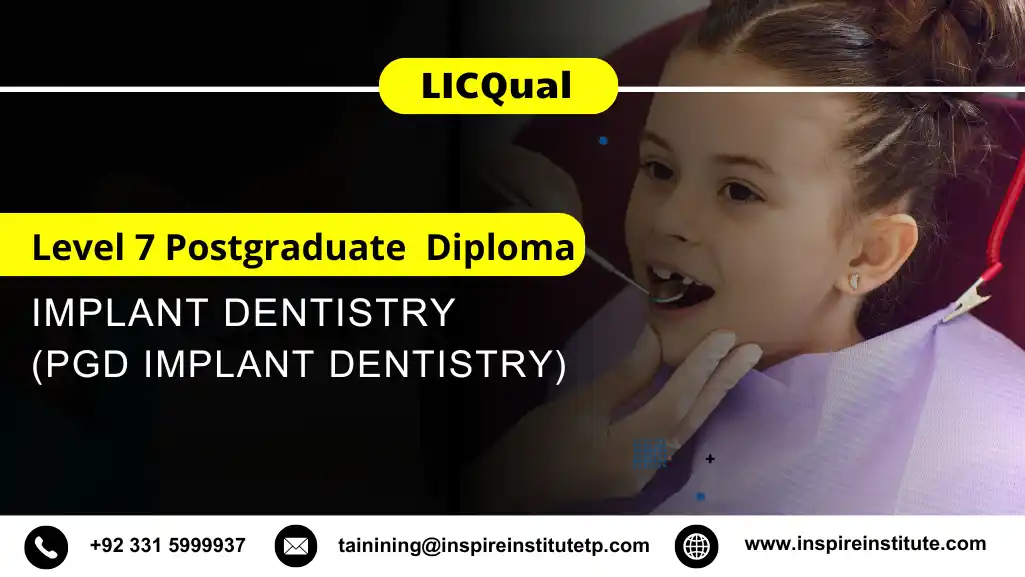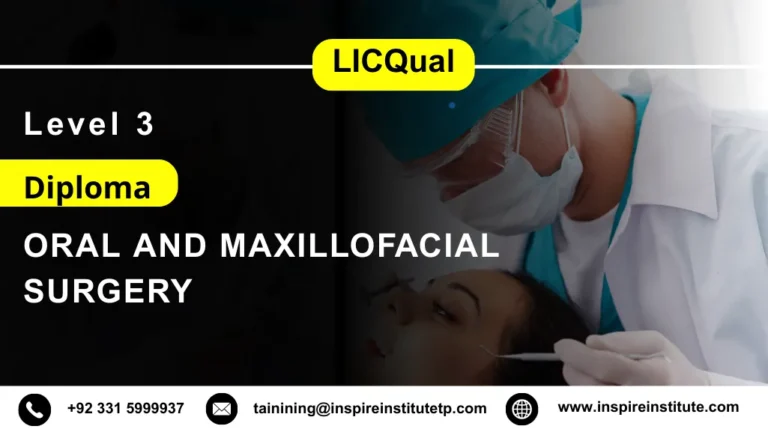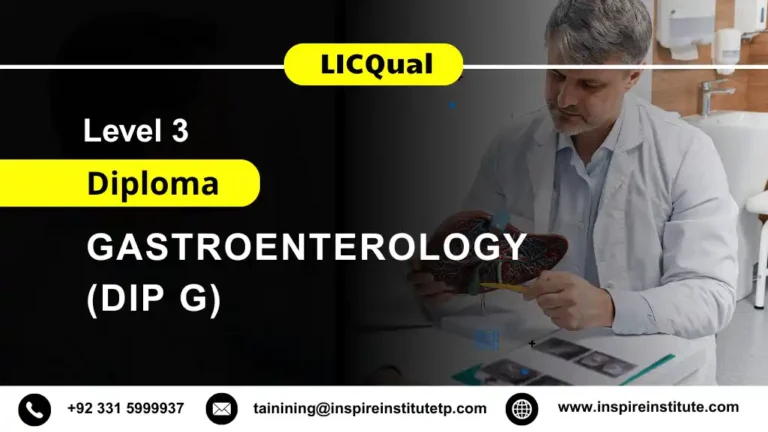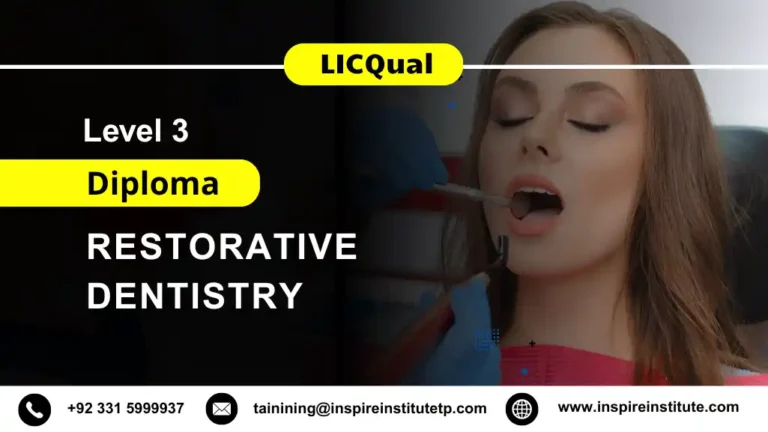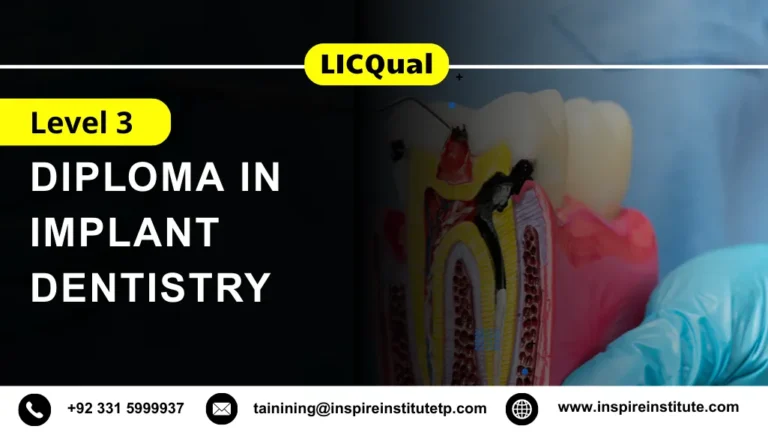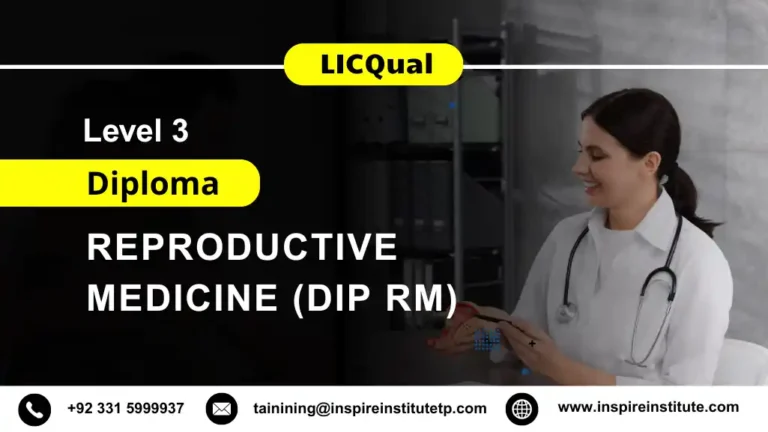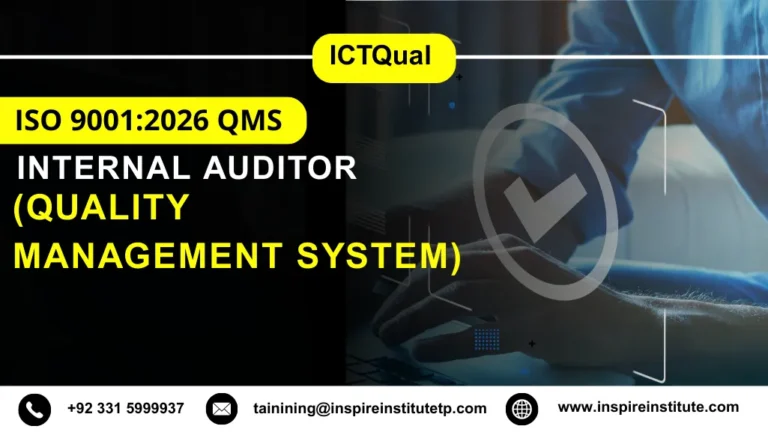LICQual Level 7 Postgraduate Diploma in Implant Dentistry (PgD Implant Dentistry)
The LICQual Level 7 Postgraduate Diploma in Implant Dentistry (PgD Implant Dentistry) is a prestigious UK-based, assignment-based qualification designed for dental professionals aiming to expand their expertise in advanced implantology. This programme provides an in-depth understanding of implant planning, placement, restoration, and aftercare, combining academic knowledge with practical approaches to meet international standards of dental practice.
The course is tailored for practising dentists who wish to enhance their clinical competencies, broaden their treatment portfolio, and deliver higher standards of patient care. By covering the latest innovations and evidence-based techniques, it equips learners with the confidence to handle complex implant cases, from single tooth replacement to full-arch restorations. Participants also gain essential insights into treatment planning, case assessment, radiographic interpretation, and the management of surgical and prosthetic complications.
Unlike traditional courses, this diploma is delivered through flexible, assignment-based learning, making it ideal for professionals balancing clinical practice with further education. It is internationally recognised, offering a valuable credential that enhances career prospects both within the UK and globally. Graduates of this programme will not only refine their clinical skills but also strengthen their academic and research abilities, enabling them to adopt a more comprehensive and patient-centred approach to implant dentistry.
The LICQual Level 7 Postgraduate Diploma in Implant Dentistry stands out as a professional development pathway that bridges theoretical learning with practical application. It is well-suited for those seeking to build advanced competence in dental implantology, ensuring they are fully prepared to meet the growing demand for high-quality restorative and implant treatments in modern dentistry.
Why Choose this Qualification
The LICQual Level 7 Postgraduate Diploma in Implant Dentistry (PgD Implant Dentistry) is designed for dental professionals seeking to specialise in advanced implantology. This UK-accredited, assignment-based programme equips learners with the essential skills and knowledge to plan, place, and restore dental implants effectively. It is ideal for practising dentists aiming to enhance clinical expertise, improve patient outcomes, and gain professional recognition in implant dentistry.
Key Reasons to Choose this Qualification
- Advanced Clinical Expertise: Gain in-depth knowledge of implant planning, surgical placement, prosthetic restoration, and post-operative care, enabling confident management of complex cases.
- Practical Application: Develop hands-on skills and clinical confidence to assess, plan, and execute implant treatments safely and efficiently in real-world settings.
- UK-Accredited Diploma: Earn a prestigious, internationally recognised qualification that enhances credibility, supports career progression, and opens global opportunities.
- Flexible Learning: Benefit from an assignment-based format that allows learners to study at their own pace, making it ideal for busy dental professionals balancing work and education.
- Evidence-Based Training: Learn the latest techniques, innovations, and best practices in implant dentistry, aligned with current research and professional standards.
- Career Growth: Expand professional opportunities within private practices, hospitals, and specialist dental clinics, positioning yourself as an expert in implantology.
- Enhanced Patient Care: Improve the ability to provide high-quality, patient-centred implant treatments that meet complex dental needs and boost satisfaction.
- Professional Development: Strengthen clinical decision-making, case analysis, and interdisciplinary collaboration skills, ensuring a well-rounded approach to advanced dental care.
This diploma provides dental professionals with the expertise, practical experience, and credentials required to excel in implant dentistry, making it an excellent choice for those seeking career advancement and professional distinction.
Course Overview
LICQual UK Awarding Body
Average Completion Time:
6-24 Months
Study Units: 6 Units
Evidence & Assignment Based
Mandatory Units
Who Should Take This Course
The LICQual Level 7 Postgraduate Diploma in Implant Dentistry (PgD Implant Dentistry) is designed for dental professionals who wish to specialise in advanced implantology. This qualification is ideal for those seeking to enhance their clinical skills in planning, placing, and restoring dental implants, improve patient outcomes, and gain professional recognition in a highly specialised area of dentistry. It provides the advanced knowledge and practical expertise required for safe, effective, and evidence-based implant care.
This course is suitable for:
- Dental Surgeons: Practitioners aiming to expand their knowledge in implant planning, surgical placement, prosthetic restoration, and management of complex implant cases.
- Dental Specialists: Professionals such as periodontists and prosthodontists who wish to integrate advanced implantology into their clinical practice.
- General Dentists: Dentists looking to broaden their treatment portfolio by offering implant-based solutions with confidence and precision.
- Dental Nurses and Support Staff: Those interested in understanding implant procedures in depth to provide more effective clinical support.
- Aspiring Implant Practitioners: Learners preparing for future specialisation in implant dentistry who want to gain a strong theoretical and practical foundation.
- Experienced Practitioners: Dental professionals seeking to update their skills, adopt modern implantology techniques, and improve treatment outcomes for patients.
- Healthcare-Oriented Learners: Individuals interested in delivering holistic oral care that combines surgical, prosthetic, and patient-centred approaches.
This course is particularly valuable for dental professionals who want to offer advanced, evidence-based implant treatments while earning a UK-accredited qualification that supports career progression, enhances professional credibility, and positions them as leaders in the field of implant dentistry.
Course Benefits
The LICQual Level 7 Postgraduate Diploma in Implant Dentistry (PgD Implant Dentistry) offers a comprehensive range of benefits for dental professionals seeking to specialise in advanced implantology. By combining academic knowledge with practical application, this diploma equips learners to plan, place, and restore dental implants effectively, enhance patient outcomes, and gain recognition as a specialist in implant dentistry. It is designed to provide flexible learning while maintaining the highest professional standards.
Key Benefits of the Course:
- Advanced Clinical Expertise: Acquire in-depth knowledge of implant planning, surgical placement, prosthetic restoration, and post-operative management for complex cases.
- Practical Competence: Develop confidence and precision in performing implant procedures and managing complications in clinical practice.
- Recognised Qualification: Earn a UK-accredited postgraduate diploma that strengthens professional credibility and supports career progression locally and internationally.
- Flexible Learning Pathway: Assignment-based structure allows learners to study at their own pace, balancing professional practice with continuing education.
- Evidence-Based Knowledge: Learn the latest techniques, research-driven practices, and innovative approaches in modern implant dentistry.
- Career Advancement: Expand professional opportunities within private practices, hospitals, and specialist dental clinics, positioning yourself as an implantology expert.
- Enhanced Patient Care: Provide high-quality, patient-centred implant treatments that improve oral function, aesthetics, and overall patient satisfaction.
- Professional Growth: Strengthen clinical decision-making, case analysis, and interdisciplinary collaboration skills, enabling a holistic approach to implant dentistry.
Overall, this diploma equips dental professionals with the practical skills, theoretical knowledge, and recognised credentials needed to excel in implant dentistry while advancing their career and contributing to exceptional patient care standards.
Eligibility Criteria
the LICQual Level 7 Postgraduate Diploma in Implant Dentistry (PgD Implant Dentistry), prospective learners should meet specific academic, professional, and technical criteria. This advanced programme is designed for dental professionals who wish to specialise in implantology, combining theoretical knowledge with practical clinical application. Meeting the entry requirements ensures that participants have the foundational expertise, experience, and skills necessary to fully benefit from the course and achieve professional excellence.
Educational Background –Applicants should hold a recognised dental qualification, such as a Bachelor of Dental Surgery (BDS) or an equivalent degree, from an accredited institution. Candidates must be registered or eligible for registration with their national dental regulatory body.
Professional Experience – Prospective learners are expected to have practical clinical experience in general dentistry. Experience in restorative dentistry, prosthodontics, or periodontics is highly advantageous, as it provides a strong foundation for advanced implant training.
Age Requirement – Learners must be 18 years or older at the time of enrollment.
Language Proficiency –As the programme is delivered in English, learners must demonstrate proficiency in reading, writing, speaking, and understanding English. Non-native speakers may be required to provide evidence of English language proficiency through recognised tests such as IELTS or equivalent, typically with a minimum score of 6.5 or higher.
Technical Requirements -Competence in basic dental procedures, clinical assessment, and patient management is required. Learners should possess the manual dexterity, precision, and familiarity with dental surgical instruments necessary for implant placement and restorative procedures.
Required Documents – Submission of a valid ID or passport and proof of educational qualifications is necessary for registration.
The Qualification Process
LICQual Level 7 Postgraduate Diploma in Implant Dentistry (PgD Implant Dentistry) follows a structured pathway to ensure learners gain comprehensive knowledge, practical skills, and professional competence in community oral healthcare.
Step 1: Self-Assessment
Learners review the entry requirements to confirm eligibility. Candidates with a background in dentistry, oral health, or public health are encouraged to apply.
Step 2: Registration
Complete the registration process by submitting required documents such as proof of qualifications, a valid ID, and payment of enrollment fees.
Step 3: Induction
An induction session is conducted to:
- Verify learner eligibility and documentation.
- Introduce study materials, learning outcomes, and assessment procedures.
Step 4: Learning and Evidence Submission
Learners complete assignments, case studies, and practical exercises demonstrating competence in public health dentistry, community oral health assessment, preventive strategies, and program planning.
Step 5: Feedback and Revision
Assessors review submitted evidence and provide constructive feedback. Learners can revise and resubmit work to meet all required standards.
Step 6: Competence Validation
Final submissions are evaluated to confirm that learners have met all theoretical and practical learning outcomes.
Step 7: Internal Quality Assurance (IQA)
The IQA team reviews the assessment process to ensure accuracy, fairness, and compliance with international standards.
Step 8: External Verification (EQA)
External verifiers validate the authenticity and quality of learner achievements.
Step 9: Certification
Upon successful verification, learners are awarded LICQual Level 7 Postgraduate Diploma in Implant Dentistry (PgD Implant Dentistry),demonstrating advanced proficiency in community oral healthcare and preparing them for professional growth in dental public health, preventive dentistry, and healthcare policy.

